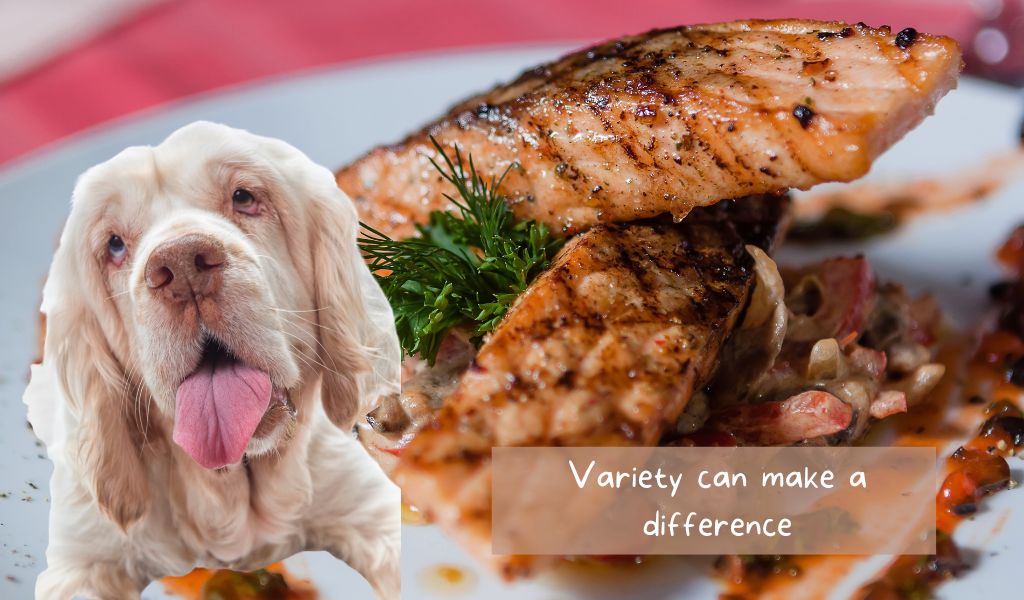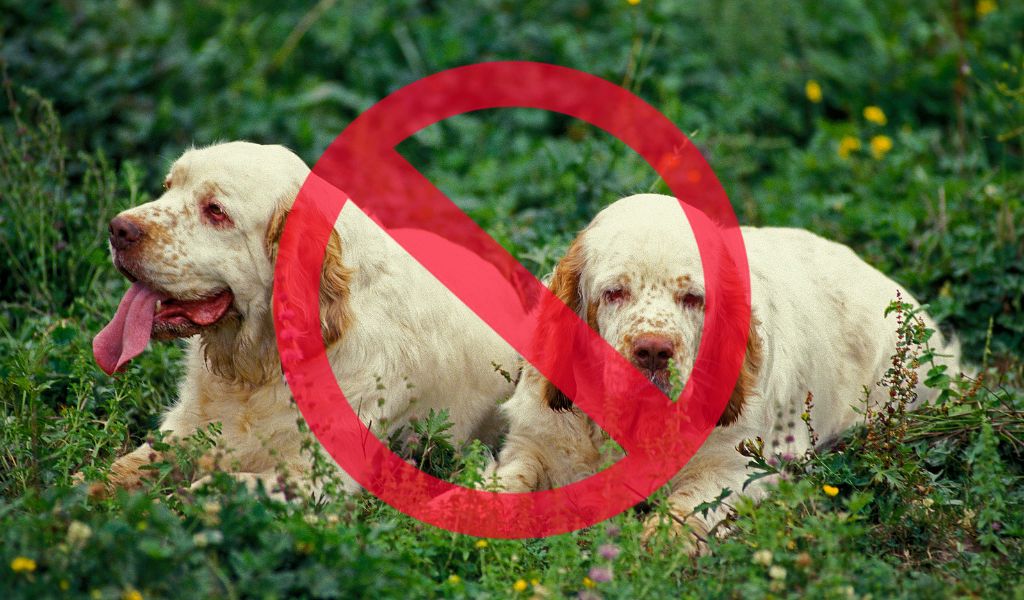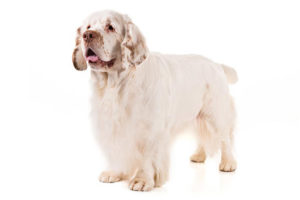Clumber spaniels are known for their sweet, gentle personalities and big appetite.
But despite this reputation, many owners of Clumbers find that their dogs can be picky eaters.
In this blog post, we’ll discuss several tips to get your Clumber eating, so that you can ensure that he stays happy and healthy.
If your Clumber is a picky eater, don’t despair – there’s no need to put up with it. With the right approach and some patience, you can help your dog develop healthy eating habits.
Understand the causes of fussy eating
The first step in dealing with picky eating habits is to understand why your dog is acting the way he is.
Many owners mistakenly assume that their dogs are being finicky when they refuse certain foods, but this isn’t always the case.
Common causes of picky eating among Clumber spaniels include:
Intolerance – Many Clumbers have allergies or food intolerances which can make them reject certain types of food.
It’s important to be aware of any potential allergies or intolerances before making changes to your dog’s diet.
Stress – Changes in routine and environment can cause a lot of stress for a dog, which can lead to an unwillingness to eat.
If you’ve recently moved or made any other changes to your dog’s life, he may be refusing food as a result.
Illness – If your spaniel has been ill, they may simply not feel up to eating.
It’s important to talk to your veterinarian if you suspect your dog is sick or needs medical attention.
Boredom – Clumbers are naturally curious and active dogs that need plenty of stimulation in order to stay happy and healthy.
If their mealtime routine is boring or uninteresting, they may refuse food out of boredom.

Try different foods to find what your dog likes
The next step in dealing with picky eating habits is to try different foods.
Some Clumbers may be more likely to eat certain types of food than others, so it’s important to experiment and find out what works best for your pup.
You can start by offering a variety of high-quality wet and dry dog foods that are specifically designed for spaniels.
Be sure to read the label carefully and make sure you’re feeding your pup a balanced diet that meets his nutritional needs.
If your dog still isn’t interested in their food, you can also try offering fresh vegetables, fruits, and meats as treats or mix-ins to their dinner.
Be mindful not to overdo it, however, as too many treats can lead to unhealthy weight gain.
You may also want to consider offering dietary supplements or probiotics to help your pup maintain a healthy digestive system and appetite.
Probiotics are especially beneficial for dogs prone to digestive problems such as vomiting and diarrhea.
Finally, try mixing up the presentation of your pup’s food by adding interesting textures or flavours.
This can help stimulate their senses and make mealtime more enjoyable and exciting.
Make mealtime fun and rewarding for your dog
Mealtime can be a great opportunity for you to reward and interact with your dog.
Adding new treats to their diet in the form of healthy snacks can make mealtime more exciting for your dog.
These treats not only provide extra nutrition but also help keep them motivated and prevent boredom with their daily meals.
Allowing dogs to explore the textures and aromas of different foods can spark curiosity and encourage exploration of new options that are both tasty and nutritious.
Make sure your dog gets plenty of exercise
A well-exercised dog is more likely to be interested in their food and willing to eat it.
Make sure to take your Clumber for regular walks or runs and engage in fun activities such as fetch or agility training.
Regular activity can help keep your pup alert and energized, which can lead to improved appetite and can even help prevent picky eating habits in the first place.
By keeping your Clumber spaniel both mentally and physically active, you can help ensure that they’re getting all the nutrition they need to live a healthy and happy life.
Monitor your spaniel’s weight
Dogs will often place themselves on diets often they will fast for several days in a row.
This behaviour is normal for many breeds and is often an attempt to reduce their overall weight due to health issues or overindulgence in food.
It’s important to monitor your Clumber spaniel’s weight and body condition – he may simply be taking ‘time off from eating’ but if he seems to be losing weight or his condition appears to be deteriorating, then you should speak with your vet.
Talk to your vet about your dog’s eating habits
If you’re still having trouble getting your Clumber to eat a sufficient amount of food, then speaking with your vet can help.
Your vet may be able to provide valuable insight and advice on how to get your dog eating again or offer dietary recommendations based on their individual medical history.
They may also recommend specific supplements, probiotics, or other treatments that could help improve your dog’s appetite and digestive health.
Final Words
Many dogs will ‘go off their foods’ from time to time, particularly if they are fed the same meal or snack every day.
This can happen for a variety of reasons: boredom, stress, changes in environment, medical issues, and more.
However, there are several ways that owners can help ensure their pup is eating enough nutritious food to maintain good health.
It’s important to offer variety when it comes to feeding your pet.
If you’re feeding dry kibble, try mixing in wet food, such as tripe, or using a specially-formulated brand for your breed.
Adding treats and snacks can also help make mealtime more interesting, while regular exercise can stimulate their appetites.
If your Clumber till isn’t eating enough or is experiencing digestive problems such as vomiting or diarrhea, it’s best to check with your veterinarian.
They may be able to recommend a suitable diet plan and offer advice on how to keep your pup happy and healthy.







